KUMIKO HAAS
Director, Instructional Improvement Programs
Biography
Dr. Kumiko Haas works with individual faculty and oversees the development and implementation of programs, services and activities across all UCLA schools and colleges in support of innovative instructional improvement. She develops and teaches intensive training programs, workshops, and seminars on issues of pedagogy, course design, and instructional methods for new and experienced instructors. Her current responsibilities include development and implementation of faculty engagement programs and teaching assistant training program. These include the New Faculty Teaching Engagement (NFTE), the Collegium of University Teaching Fellows Program (CUTF), TA Training Program (TATP), Teaching Assistant Consultant (TAC) Program and the TAC Academy, and Test of Oral Proficiency (TOP) and oversight of the Instructional Improvement Grant Programs (IIP Grants). She is also a serves as the chair of the Distinguished Teaching Awards Selection Committee of the Campuswide Distinguished Teaching Awards.
Dr. Haas received her Bachelor of Arts degree from the International Christian University in Tokyo, and earned an M.A. and Ph.D. in Psychology from UC Berkeley. Her doctoral work at UC Berkeley and post-doctoral work at California State University, Los Angeles examined cultural and familial influences on student motivation, learning and academic success. Her expertise is in curriculum development, pedagogy, student learning, as well as student mentoring and advising.
MARC LEVIS-FITZGERALD
Biography
Dr. Marc Levis-Fitzgerald heads the Center for Educational Assessment, staffed by researchers with backgrounds in Education, Sociology, Psychology, and Chemistry. He received his Ph.D. in Higher Education at UCLA and has spent 4 years staffing the newly formed Undergraduate Council in the UCLA Academic Senate. His research interests include curriculum reform and evaluation, student and faculty development, and institutional transformation. He is particularly interested in documenting the experience of undergraduate and graduate students, and directs the development and implementation of the UCLA Senior Survey. He heads several assessment projects funded by the California Education Learning Lab, HHMI, Mellon, NIH, NSF, and TEAGLE as well as several internal grants. Several grants involve multiple institutions. His recent work with large data sets and increased expertise in learning analytics are responding to the latest campus calls for more contextual, comprehensive, and long-term data, integrated and readily available from multiple sources. In responding to this call, Marc’s work is primed to evolve with the needs of research collaborators, increasing his capacity to measure and improve student outcomes. Of significant interest to Marc are those faculty, students, and staff who are traditionally overlooked and historically excluded. Understanding the barriers facing all groups—women, underrepresented groups, transfer students, LGBTQ, seniors—in all academic disciplines has been and continues to be a top priority in his work.




